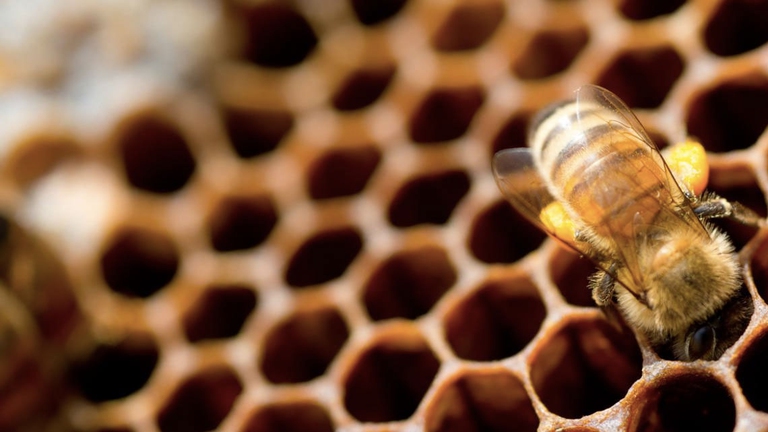
South African court dismisses a major lawsuit by 140,000 Zambian women and children against Anglo American for Kabwe lead poisoning. A setback for affected communities enduring the lasting impact of lead contamination.
European bees are poisoned by a cocktail of 57 pesticides, according to a new study. 98% of these substances are regularly approved for use by the EU. And bees are dying off. European bees are exposed to at least 57 different types of weed killers. This shocking figure was revealed by research conducted in
European bees are poisoned by a cocktail of 57 pesticides, according to a new study. 98% of these substances are regularly approved for use by the EU. And bees are dying off.
European bees are exposed to at least 57 different types of weed killers. This shocking figure was revealed by research conducted in Poland and published in the Journal of Chromatography, which has detected the toxic cocktail in poisoned honeybees by means of a method called Quechers for analysing 200 pesticides at the same time.
Researchers did their tests to investigate 70 honeybee poisoning incidents and discovered that bees weren’t killed by a single pesticide, but by a combination of them – a true deadly cocktail – as well as by prolonged exposure to them.
Scientists also found that 98% of the substances detected during the study is regularly authorised by the European Union. Researchers highlighted the seriousness of this global threat to honeybees: in the United States the population of these insects is rapidly declining because of the Colony Collapse Disorder, while in Europe the connection between the use of pesticides and mass bee die-offs led to a ban on neonicotinoids. However, the study carried out by the Polish Veterinary Research Institute underlines that banning a single family of pesticides may not be enough to save bees.
“Bees are considered critically important for the environment – said Tomasz Kiljanek, lead author of the study – that’s why we wanted to develop a test for a large number of pesticides currently approved for use in the European Union”.
“This is just the beginning of our research on the impact of pesticides on honeybee health. – said Kiljanek – Honeybee poisoning incidents are the tip of the iceberg. Even at very low levels, pesticides can weaken bees’ defense systems, allowing parasites or viruses to kill the colony”.
With so many pesticides in use, it’s difficult to understand which ones are seriously putting bees at risk. What is certain is that some combinations of pesticides (the cocktail effect) and a prolonged exposure to them poison honeybees and weaken their defenses against parasites and some diseases.
Siamo anche su WhatsApp. Segui il canale ufficiale LifeGate per restare aggiornata, aggiornato sulle ultime notizie e sulle nostre attività.
![]()
Quest'opera è distribuita con Licenza Creative Commons Attribuzione - Non commerciale - Non opere derivate 4.0 Internazionale.
South African court dismisses a major lawsuit by 140,000 Zambian women and children against Anglo American for Kabwe lead poisoning. A setback for affected communities enduring the lasting impact of lead contamination.
Controversial African land deals by Blue Carbon face skepticism regarding their environmental impact and doubts about the company’s track record, raising concerns about potential divergence from authentic environmental initiatives.
Majuli, the world’s largest river island in Assam State of India is quickly disappearing into the Brahmaputra river due to soil erosion.
Food imported into the EU aren’t subject to the same production standards as European food. The introduction of mirror clauses would ensure reciprocity while also encouraging the agroecological transition.
Sikkim is a hilly State in north-east India. Surrounded by villages that attracts outsiders thanks to its soothing calmness and natural beauty.
Sikkim, one of the smallest states in India has made it mandatory for new mothers to plant saplings and protect them like their children to save environment
Chilekwa Mumba is a Zambian is an environmental activist and community organizer. He is known for having organized a successful lawsuit against UK-based mining companies.
What led to the Fukushima water release, and what are the impacts of one of the most controversial decisions of the post-nuclear disaster clean-up effort?
Nzambi Matee is a Kenyan engineer who produces sustainable low-cost construction materials made of recycled plastic waste with the aim of addressing plastic pollution and affordable housing.








